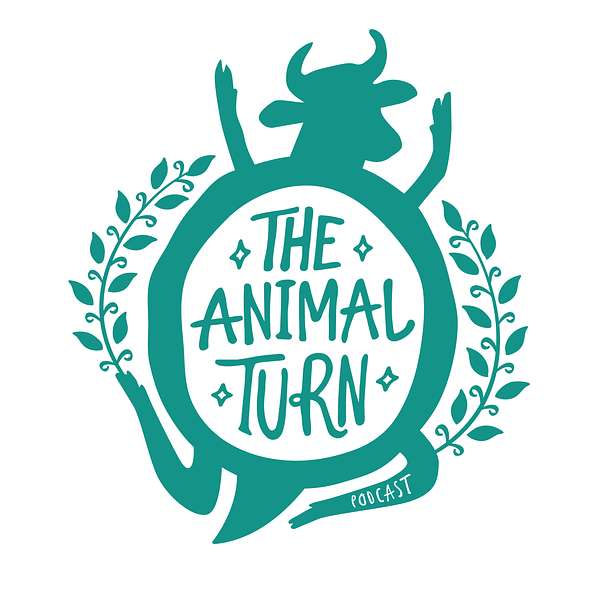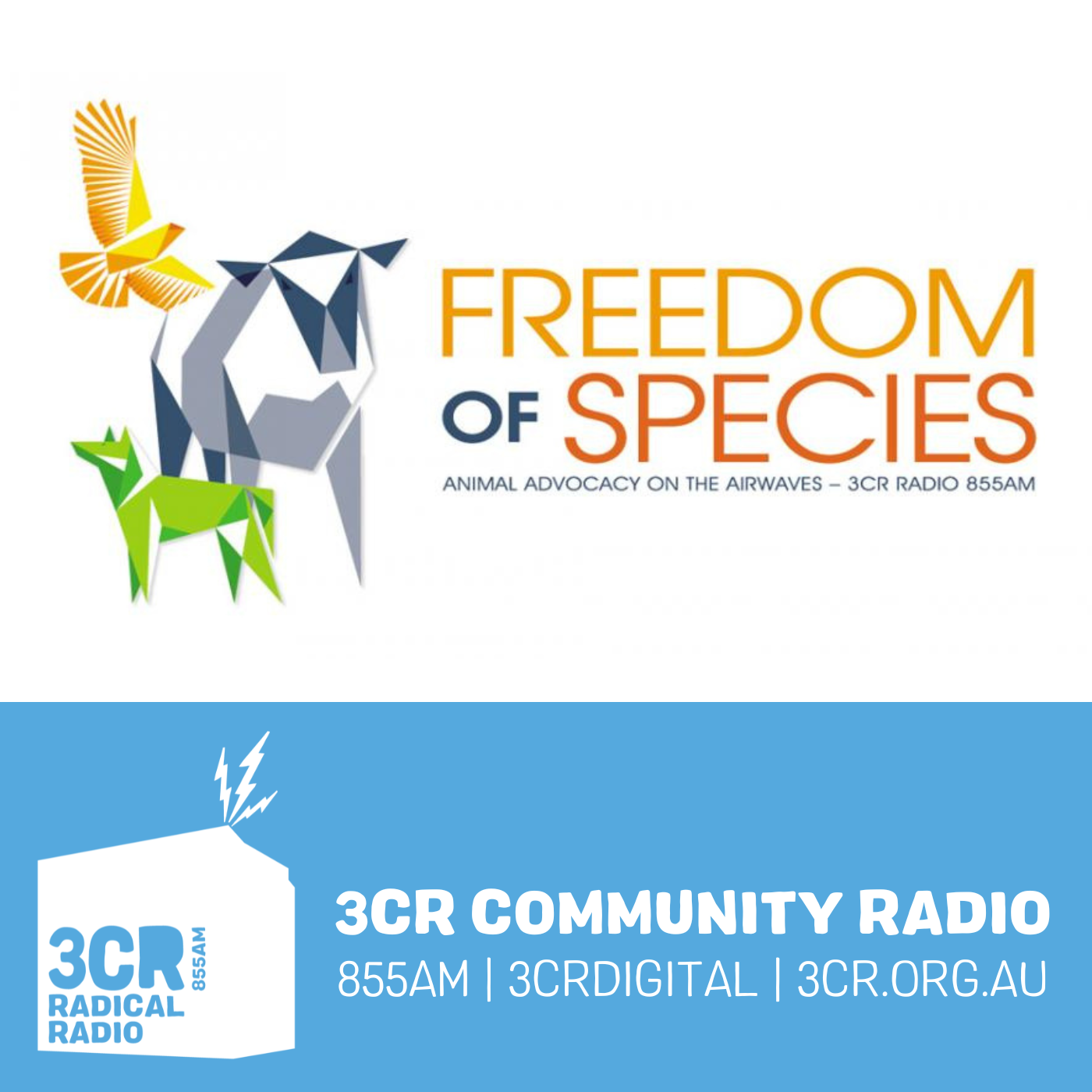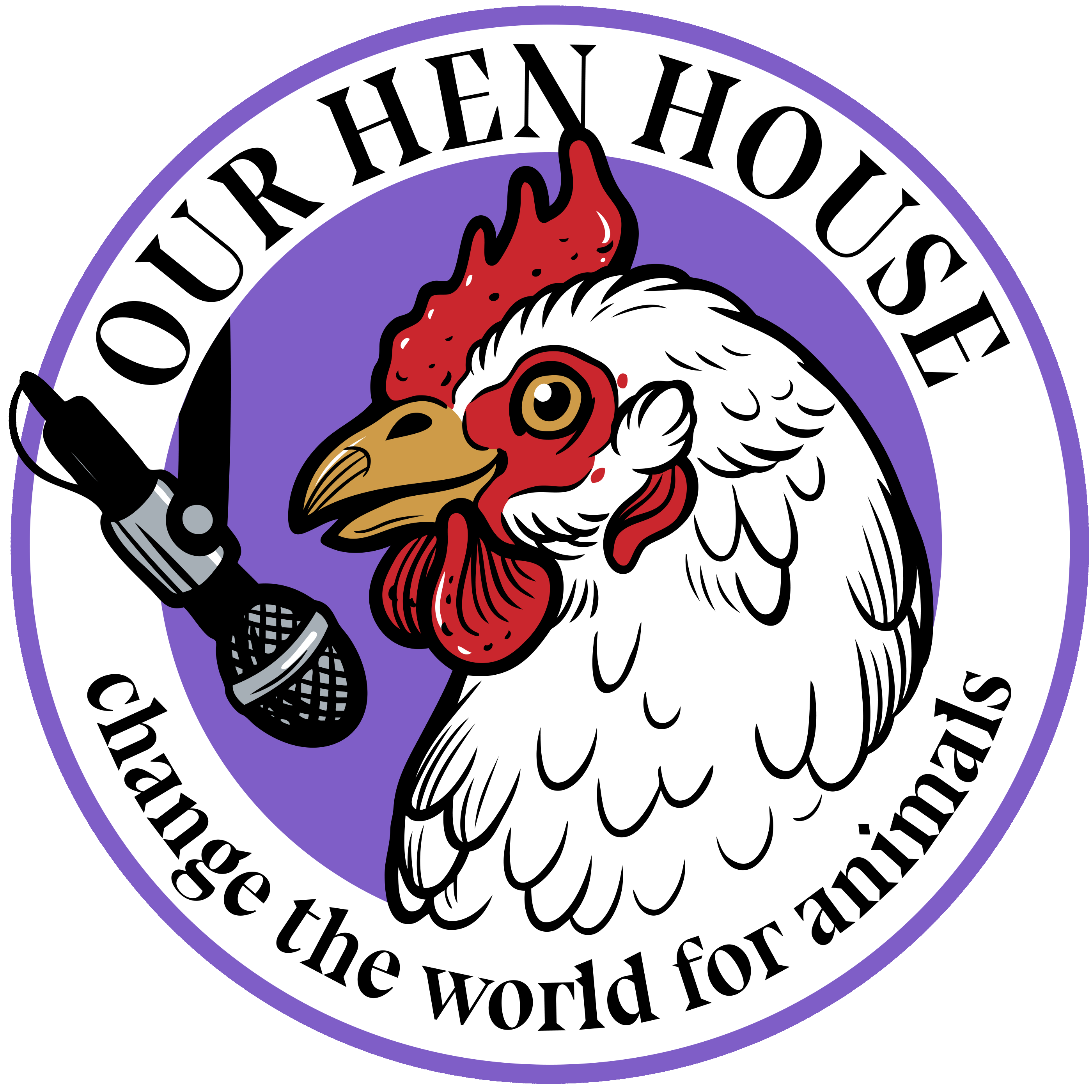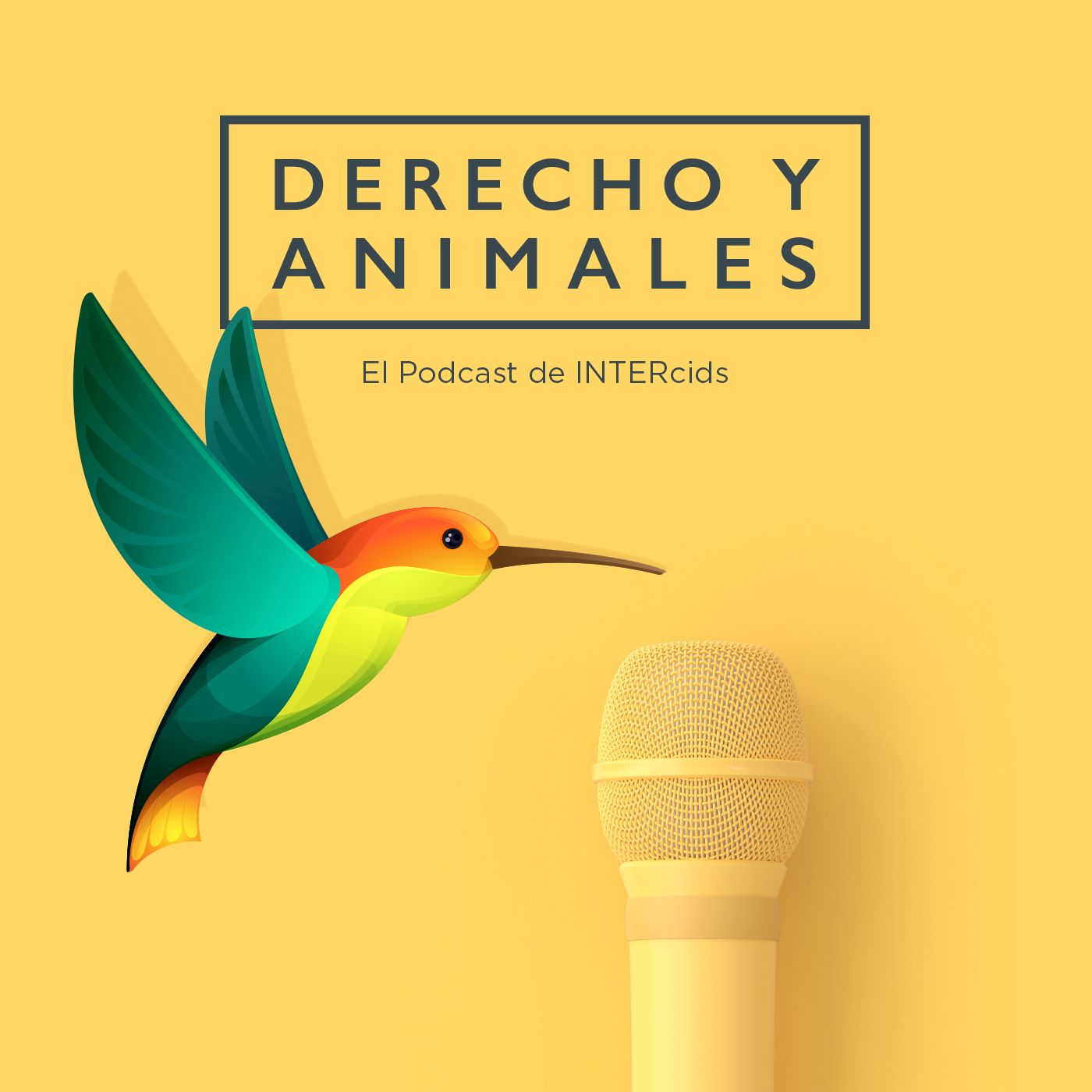
The Animal Turn
Animals are increasingly at the forefront of research questions – Not as shadows to human stories, or as beings we want to understand biologically, or for purely our benefit – but as beings who have histories, stories, and geographies of their own. Each season is set around themes with each episode unpacking a particular animal turn concept and its significance therein. Join Claudia Hirtenfelder as she delves into some of the most important ideas emerging out of this recent turn in scholarship, thinking, and being.
The Animal Turn
Bonus: Interference with Paul Watson
Use Left/Right to seek, Home/End to jump to start or end. Hold shift to jump forward or backward.
In this bonus episode Claudia talks to Captain Paul Watson about the concept of interference. They discuss his recent book Hitman for the Kindness Club as well as how he uses strategies of “aggressive nonviolence” to combat what he calls “the economics of extinction.” They also touch on the destructiveness of the fishing industry and factory farming for the oceans and the future of the planet.
Date Recorded: 3 October 2023.
Captain Paul Watson is a marine wildlife conservation and environmental activist. Paul was one of the founding members and directors of Greenpeace. In 1977, he left Greenpeace and founded the Sea Shepherd Conservation Society. He is a renowned speaker, accomplished author, master mariner, and lifelong environmentalist, Captain Watson has been awarded many honors for his dedication to the oceans and to the planet. Among many commendations for his work, he received the Genesis Award for Lifetime Achievement in 1998, was named as one of the Top 20 Environmental Heroes of the 20th Century by Time Magazine in 2000 and was inducted into the U.S. Animal Rights Hall of Fame in Washington D.C. in 2002. He was also awarded the Amazon Peace Prize by the president of Ecuador in 2007. In 2012, Captain Watson became only the second person, after Captain Jacques Cousteau, to be awarded the Jules Verne Award, dedicated to environmentalists and adventurers. In 2022, Captain Paul Watson continues his fight for marine wildlife conservation with the new Captain Paul Watson Foundation – paulwatsonfoundation.org
Claudia (Towne) Hirtenfelder is the founder and host of The Animal Turn. She has a PhD in Geography from Queen’s University, and her research is focused on the significance of the problematization of urban animals. She was awarded the AASA Award for Popular Communication for her work on the podcast. Contact Claudia via email (info@theanimalturnpodcast.com) or follow her on Twitter (@ClaudiaFTowne).
Featured:
- Hitman for the Kindness Club: High Seas Escapades and Heroic Adventures of an Eco-Activist by Pul Watson
- Sea of Heartbreak: An Extraordinary Account of a Newfoundland Fishing Voyage by Michael J. Dwyer.
- What a fish knows
Animals in Politics, Law, and Ethics researches how we live in interspecies societies and polities.
iROAR Network
iROAR brings together podcasts that aim is to make the world a better place for animals.
Disclaimer: This post contains affiliate links. If you make a purchase, I may receive a commission at no extra cost to you.
The Animal Turn is hosted and produced by Claudia Hirtenfelder and is part of the iROAR Network. Learn more on our website.
- Leave a Review on Podchaser
- Check out The Animal Turn Merch.
- Support us on Patreon, Buy Me a Coffee, and Buzzsprout.
00:00 - Introduction
- “A few years ago I had a call from Brit Hume, he was a reporter for Fox News and he said: ‘I heard that you said that bees, trees, whales, and fish, are more important than people. Did you say that?’ And I said: ‘Yes, I did.’ And he said: ‘how could you say something so outrageous so as to say these things are more important than people?’ And I said: ‘Because they are more important than people for the very simple fact that they can survive without us, we cannot survive without them.’”
- Hitman for the Kindness Club: High Seas Escapades and Heroic Adventures of an Eco-Activist by Pul Watson
- Don’t do a deep dive into what the concept of interference means but how to disrupt the exploitation of animals, highlighting what activists and scholars can do.
- Captain Paul Watson is a marine wildlife conservation and environmental activist. Paul was one of the founding members and directors of Greenpeace. In 1977, he left Greenpeace and founded the Sea Shepherd Conservation Society. He is a renowned speaker, accomplished author, master mariner, and lifelong environmentalist, Captain Watson has been awarded many honors for his dedication to the oceans and to the planet. Among many commendations for his work, he received the Genesis Award for Lifetime Achievement in 1998, was named as one of the Top 20 Environmental Heroes of the 20th Century by Time Magazine in 2000 and was inducted into the U.S. Animal Rights Hall of Fame in Washington D.C. in 2002. He was also awarded the Amazon Peace Prize by the president of Ecuador in 2007. In 2012, Captain Watson became only the second person, after Captain Jacques Cousteau, to be awarded the Jules Verne Award, dedicated to environmentalists and adventurers. In 2022, Captain Paul Watson continues his fight for marine wildlife conservation with the new Captain Paul Watson Foundation – paulwatsonfoundation.org
- Call dropped unfortunately so the interview ends rather abruptly.
03:50 – Hitman for the Kindness Club
- “You’ve made a career of interfering, of getting in the way” – Claudia
- Opportunity to talk about the other animals who Paul has helped.
- Ida Flemming set up the Kindness Club, a club to teach children to be kind to animals. When Paul was interfering with the Canadian seal club, Ida said he had become the Hitman for the Kindness Club and that inspired he titled.
- Swam with a family of beavers when he was ten years old and trappers took them in the winter, this made Paul angry and he started destroying traps.
- Don’t recall ever being scared, in a way it is exciting but he needs to be detached.
08:10– Aggressive Non-violence
- You have to be somewhat detached, you can’t let your emotions take over.
- In 1977, set up a strategy of aggressive-nonviolence, “To aggressively intervene but not cause any injury to the people that you are intervening against.” – Paul
- Has an unblemished record, saved thousands of animals
- Co-founder of Greenpeace in the 1970s, Paul was the first officer on the first voyagers.
- Increasingly frustrated with Greenpeace only taking pictures and hanging banners. The quaker philosophy is bearing witness and not intervening and that bothered Paul.
- “Some point morally you have to intervene but at the same time you have to operate within the boundaries of the law and practicality and be as cautious as possible but still be effective. So it’s difficult but it’s the only way to really proceed.” – Paul
10:09 – Law, Policy, and Lack of Enforcement
- Using international law and agreements to intervene but this could conflict with national laws.
- Laws operate at different scales and they come into conflict within each other.
- We have enough law but not enough enforcement.
- “The fact is, the activities we are opposing are illegal” – Paul
- Use the UN Charter for Nature which says any individual or organisation is empowered to uphold conservation law.
- Intergovernmental organizations often criticized for not having enough teeth and that they lack the necessary policing mechanisms.
- Just this past year a new ocean protection law has been passed but it means nothing if you have no enforcement.
- The UN has peace keeping forces and the US enforces drug laws in international laws – the means is there but there is a lack of will.
- We have to get serious about protecting marine life.
14:45 – What’s happening in the oceans?
- “To be blunt about, the oceans are dying” – Paul
- “If the oceans die, we die” – Paul
- Phytoplankton is diminishing because we have killed the species who supplying them with their necessary nutrients.
- Everyday one blue whale dumps three tons of manure.
- The ocean sustains us and is an incredible life support system.
- The best solution to climate change is to leave the oceans alone and abandon these industrialised fishing operations.
- We need to give the ocean time to respond.
- We are killing the planet’s engineers.
- “A world without worms, and bees, and trees, and fish, is not a world that we can survive in” – Paul
- We’ve built up an anthropocentric point of view. We believe everything is for us even though we have only been on this planet for a short period of time.
18:18 – Ecology and Biocentrism
- Set up the church of biocentricism. Everything is interdependent.
- There are three basic laws of ecology: diversity, interdependence, and finite resources.
- The tension between ecocentrism and animal-centrism.
- In the step of being eco-centric…forget there are individuals and animals who experience these interventions.
- Sometimes an ecocentric model can forget, and use killing, to maintain an ideal of an ideal ecology.
- We have to live in harmony – in a natural world that is what happens. We have intervened and caused the diminishment of many species.
- Solutions will come from the laws of ecology
- “To most animals we are simply Nazis” – Paul.
- Animals seek out interactions including whales and seals.
- Cruelty free way o collecting seal fur by brushing them.
23:51 – Fishing: A Destructive Industry
- “Fishermen tend to get whatever they want” – Paul
- Politicians fear fishermen
- The fishing industry can destroy life on this planet, it is a destructive industry.
- Sea of Heartbreak: An Extraordinary Account of a Newfoundland Fishing Voyage by Michael J. Dwyer.
- Super trawlers can pull in 7000 tons of fish on every voyage.
- For every kilo of anything caught, there are dozens of kilos of by-catch which includes sea-turtles.
- Massive technology and debt loans to sustain fishing.
- “The fish have nowhere to go” – Paul
- “There is no sustainable fishing anywhere on the planet today” – Paul
- All commercial fisheries are in a state of collapse.
- Science is coopted to sustain this destructive industry.
- Collapse of cod fisheries.
- Scientists say what the government want them to say.
28:03 – Economics of Extinction
- “I call it the economics of extinction. There is money to be made by driving species into extinction” – Paul.
- Blue Fin Tuna can sell for $75,000. They have almost been wiped out and continue to be fished despite warehouses being filled with Blue Fin Tuna.
- Scarcity translates into higher prices and therefore profits.
- The prices being paid for fish today are incredible.
- Paul used to eat lobster as a child, lobster used to be called the poor man’s meat
- What a fish knows by Jonathan Balcombe
- There is amazing diversity of fish.
- Why do you think we struggle to emphasize with ocean life?
- Tend to lump fish together and not recognise their intelligence and diversity.
- The Orange Roughy fish can live to be 200 years of age.
- Pollocks used to not be enjoyed but now used for fake crab meat and it is being wiped down.
- “It all comes down to marketing” – Paul.
33:20 – Media as a strategy for intervention
- “We live in a media culture…media defines reality” – Paul
- “We are not as free as we think we are” – Paul
- There are only four elements to media stories – sex, scandal, violence, and celebrity.
- Use celebrities to help get messages out there. Also give the illusion of violence to get media attention.
- In 1984 led a campaign to protect wolves in British Columbia and this had all four media elements so it stayed in focus for four days across Canada.
- Media sometimes framed Paul as an eco-terrorist.
- “Have some of these elements worked against you over the course of your career? Would you do anything differently?” – Claudia
- “No, I don’t this so” – Paul
- The Bill Mahr show said people are calling me an ecoterrorist and I said I don’t work for Monsanto.
- You have to use non-violence because then people can’t call you terrorists.
- You have to understand your opposition.
- Cameras and media have always been on the expeditions which might help to level the playing field.
37:45 – Seal Hunt and the Canadian Government
- Fighting the seal hunt from 1975-2008.
- None of these fights take place over night.
- Fighting sealers on the ice and the Canadian government in court.
- Sometimes you have to say things that piss people off to get your message across.
- CBC Live interview asked to apologise for sensitive comments about the death of four sealers.
- Have to use these media opportunities.
- “The survival of species is much more important than the survival of an individual” – Paul.
- We think we are individuals but we are actually a collection of things, including viruses and bacteria.
- Is it a matter of saying one life is equal to one life?
- The seal hunt is a welfare program based on government subsidies. The same is true for fishing.
- The only market for seals now is selling seal penises to China
45:00 – Factory Farms
- 35% of all fish caught are fed to farmed animals
- Chickens eat more fish than many wild animals put together.
- The emergence and spread of many diseases is due to factory farms.
- The Coming Plague by Laurie Garrett
- Reducing species creates openings for viruses.
- The common cold comes from horses, small pox comes from cows.
- Exploitation of animals is one of the main cause for the zoonotic spread of viruses.
- Science co-opted by industries
48:43 – How can academics to intervene?
- The strength of the movement is in a diversity of approaches and passions.
- Everyone of us have the ability to change the world. Individuals can make an incredible difference.
- Imagination, courage, and passion will save the planet.
- Speak out and say things that people maybe don’t want to hear.
- You need to use your credibility as a scholar.
- If you see anyone being abused or about to be killed, intervene
- Aggressive-nonviolence, don’t cause injury.
- It’s a fine line but if you don’t cross the line, you don’t cross it.
54:00 – Sperm Whale Story and Quote
- “If the oceans die, then we die” – Paul
- This is the planet ocean and that means that water is in constant circulation.
- “We are the ocean. It is the ocean moving through us” – Paul
- The sperm whale story – Paul Watson and Robert Hunter tried to get in the way of a harpooner.
- Whalers killed a female and then a large male threw himself up at the bow of a Soviet vessel but when the whale fell back he actively tried to avoid hitting Paul and Robert.
- “I owe my life to that whale” – Paul.
58:43 – Credits
- Thank you to Animals in Philosophy, Politics, Law and Ethics (A.P.P.L.E) for sponsoring this podcast; Gordon Clarke (Instagram: @_con_sol_) for the bed music, and Jeremy John for the logo. This episode was edited by Christiaan Mentz and produced by the host Claudia Towne Hirtenfelder.
Podcasts we love
Check out these other fine podcasts recommended by us, not an algorithm.

The Animal Highlight
Claudia Hirtenfelder
Knowing Animals
Josh Milburn
Species Unite
Species Unite
The Deal with Animals with Marika S. Bell
Marika S. Bell
The Other Animals
Laurent Levy
Beyond Species
Beyond Species
The Anthrozoology Podcast
Anthrozoology Podcast
Freedom of Species
The Freedom of Species Team
Our Hen House: Vegan & Animal Rights Movement | Stories from the Frontlines of Animal Liberation
Jasmin Singer and Mariann Sullivan
Derecho y Animales
Derecho y Animales
Storytelling Animals
Dayton Martindale
Species
mackenmurphy.org
Animal Law Matters
K & R Animal Law
The Humanimal Connection
Humanimal Trust
The Animal That Changed You
Katya Lidsky
Think Like a Vegan
Emilia Leese
The Shifting Lens: Viewing the Animal Experience
Tiamat Warda Rebecca Madrid
The Salmon People
Canada's National Observer
Comme un poisson dans l'eau
Victor Duran-Le Peuch

